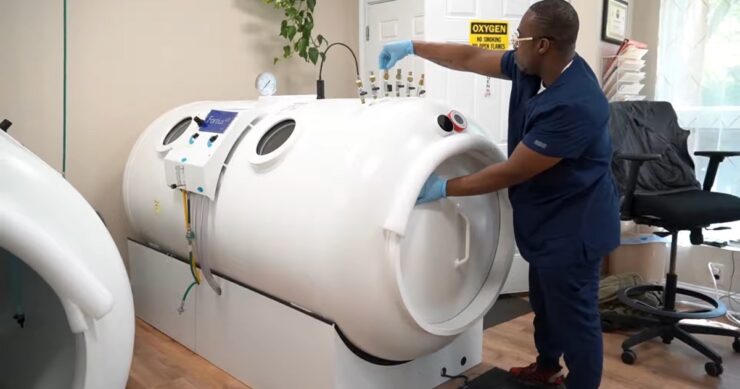
Almost all states in the US require employers to have workers comp insurance for their employees. If you are an employer in Arkansas with three or more employees, you are required by law to have workers’ comp insurance. Some industries have specific exemptions, and an employer should confirm with relevant bodies instead of working with assumptions, as some require coverage with less than three employees.
Workers comp insurance is available through the workers’ comp insurance policy or the employee getting approval to be self-insured. Other arrangements can constitute fraud. Also, failure to comply will be subject to penalties, and an employer may lose the protection by the insurance and Arkansas state laws.
Here is all you need to know about the insurance requirements for AR workers’ compensation.
Who Should Have The AR Workers’ Compensation?

As stated earlier, a business with three or more employees should have a workers’ compensation policy. However, some industries will require this insurance despite having fewer than three employees. These include:
- Businesses in building and repair work
- A subcontractor or contractor subcontracting a part of their work
Other worker categories exempted from workers comp in Arkansas include sole proprietors, agricultural laborers, real estate agents, nonprofit employees, agricultural laborers, religious, relief, and charitable organizations. While you are not legally bound to purchase a workers comp as a sole proprietor, you can have it in your best interest as you can also suffer workplace injuries.
The Verification Process For The Arkansas Workers Comp
Arkansas law requires employers to display a poster (Form P) at the workplace. Form P bears instructions for employees to follow after a work-related injury or illness. An employer that fails to display this form may lose some protection.
If an employee suffers a work-related injury, they should report it to their employer, who then gives them Form N to fill out and return to them. Form N informs an employee of their responsibilities and rights after an injury. Form N captures a detailed account of your illness or injury, time, location, and names of witnesses present at the time of the accident.
The employer will then fill and send the state’s version (Form 1) or the first report of injury to the insurance representative, who then reports to the state of employers. Notifying your employer within 30 days is ideal to avoid denial of claims. Other reports that an employer will submit include:
- Wage statement upon request by the insurance representative
- Supplemental reports of change in employee condition
- Accident investigation report
- Form AR-W wage settlement
To understand the details in the above forms, an employer should contact relevant bodies, including the Communications Liaison, Operations/Compliance Division, Self-Insurance Division, Medical Cost Containment Division, Health and Safety Division, and Legal Advisor Division.
After your employer files your First Report of Injury, they may request a physical exam by the company doctor. Where necessary, you may need medical exams to establish the extent of the injury. Following the instructions to the latter is advisable to avoid denial of benefits.
An employer or insurance has the right to choose the provider to treat the injured workers, but they should do this through a notice. If the insurance representative has a managed care organization (MCO), they should also post a health notice (Form H) at the business.
Two options are feasible after reporting a workplace injury to the insurance carrier. The insurance company may accept or deny the insurance. In the latter case, the insurance company will contact the employer in the following ways:
- A letter requesting the employer to reach out to the insurance and request proof of coverage filing at the AWCC.
- A questionnaire from the Compliance division where there are no records at the AWCC showing insurance renewal.
- An onsite visit to the business where written communication could be more effective.
Workers Comp Statute Of Limitations

Under Arkansas law, the statute of limitations for filing a workers comp claim after an injury is two years from the injury date or from the date the worker knew their injury or impairment is the result of work conditions.
Workers Compensation Settlements In Arkansas
A workers’ compensation settlement depicts an agreement between the employer and the insurance company to resolve your claim. As an injured worker will receive a lump sum payment covering the following:
Medical Care Costs

If your employee gets injured or becomes ill on the job, the AR workers compensation will cover their medical expenses, including ER visits, ambulance rides, surgery, X-rays, and prescription medications. Employees should report a provider that bills them for treating workers comp injuries.
The workers’ comp insurance will also cover long-term treatments such as rehabilitation and physical therapy in case of spine and foot injuries. The employer will, in turn, report to the insurance representative. If an employer receives bills from the medical provider, they should forward them immediately to their insurance representative for action. Delays can interfere with the treatment process of the injured worker.
Lost Wages or Income
If an employee cannot continue working after an injury, the AR workers’ compensation will replace the missing income to maintain their quality of life as they focus on recovery.
Temporary And Permanent Disability
If your injury causes disability, workers comp will pay your ongoing bills and replace the portion of your wages lost due to your inability to work.
Occupational Related Illness

Over time, exposure to certain workplace environments can harm an employee’s health. A workers comp settlement will come in handy in treating the illness.
Funeral Planning Expenses
In the case of the death of an employee due to a work accident, the AR workers’ compensation has a provision for covering the funeral costs and death benefits to the surviving family members.
Contact Your Insurance Company For Clarity On Workers Comp
Filing a successful workers comp claim requires collaboration from the employee, employer, and insurance company. This includes timely reporting of workplace injuries and submission of related injuries. Therefore, as an employer, work with your insurance provider and relevant bodies to ensure adherence to the law and procedures for maximum benefits in unfortunate events.
Related Posts:
- Are All Employers Required To Offer Workers’ Comp Insurance?
- What To Look For In Workers Comp Insurance For Small…
- SR-22 Filing for Commercial Auto Insurance: What to Expect
- Evaluating Your Life Insurance Needs: Planning for…
- Short Throw vs Long Throw Projectors: What's the Difference?
- The Role of Failure in Inventing: Learning from…














